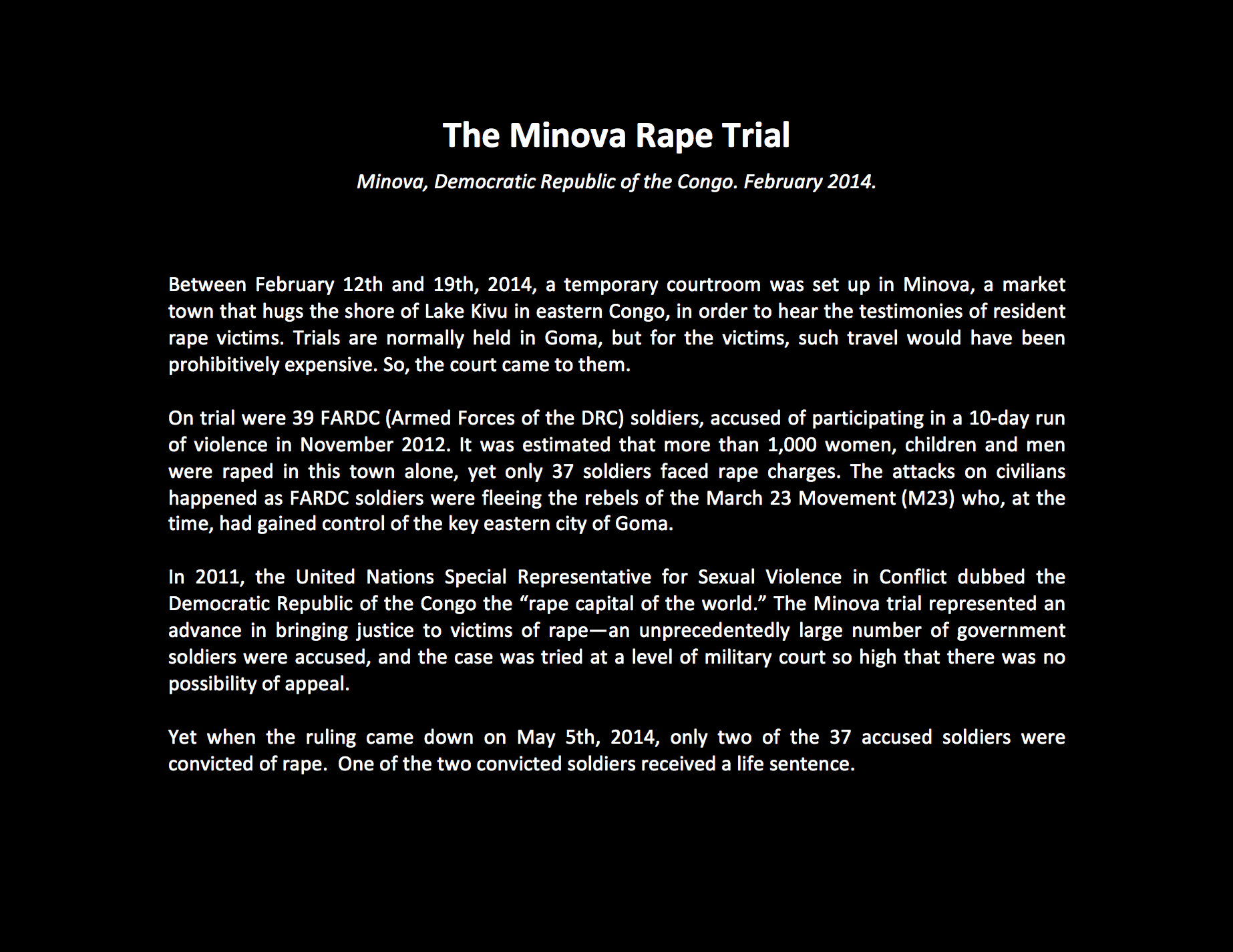
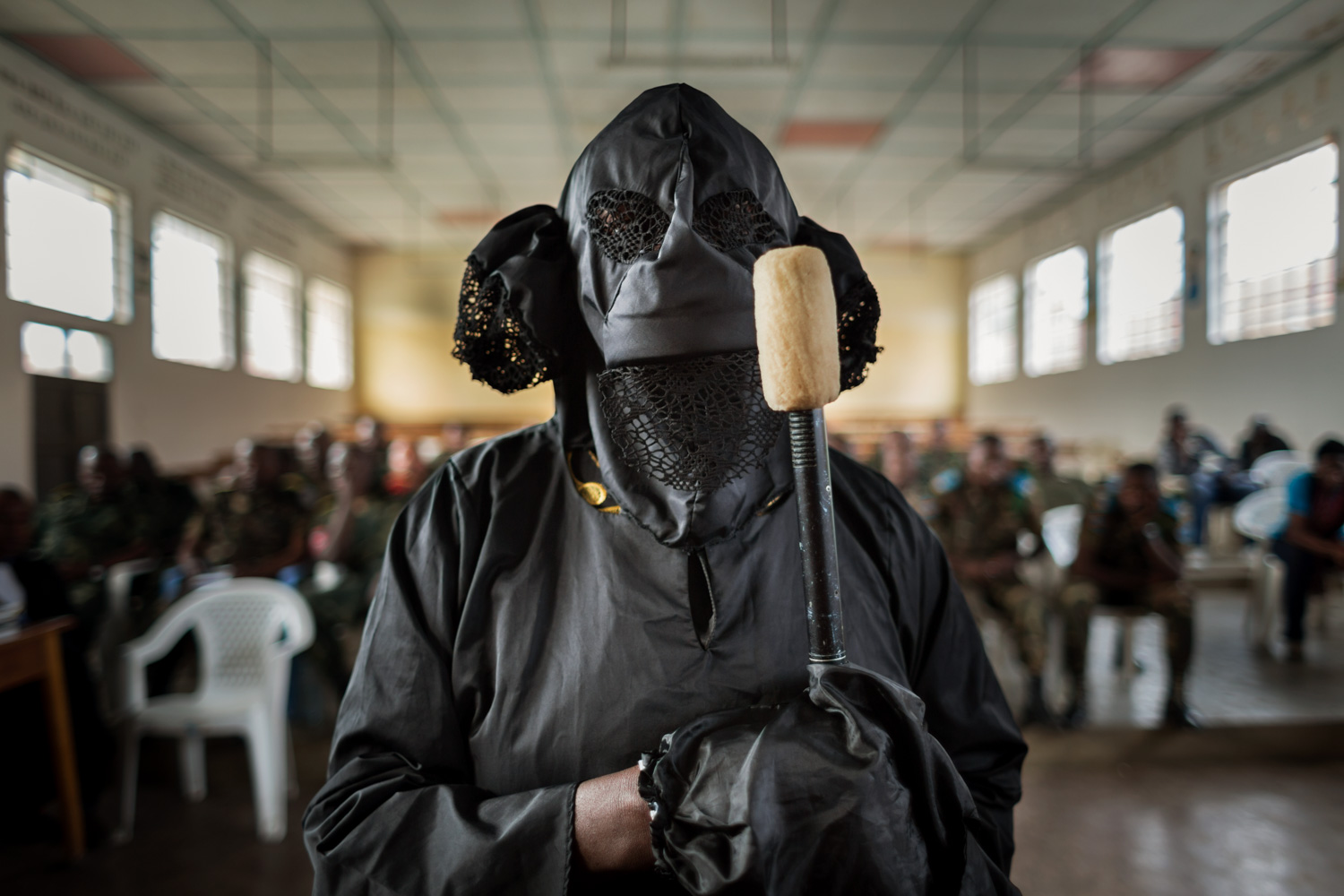
A victim testifies. On a November evening in 2012, around 8 p.m., Congolese government soldiers knocked on her door. Her five children scattered and hid in the bedroom. Her husband was already gone. He fled when he heard bullets fired earlier. When the soldiers entered the house, two of them threw her on the ground and began to rape her. The others pillaged her home, carrying off sacks of rice and corn, cans of cooking oil that her family had received from an aid organization. Her husband returned in the morning. When he learned she had been raped, he left and never returned.
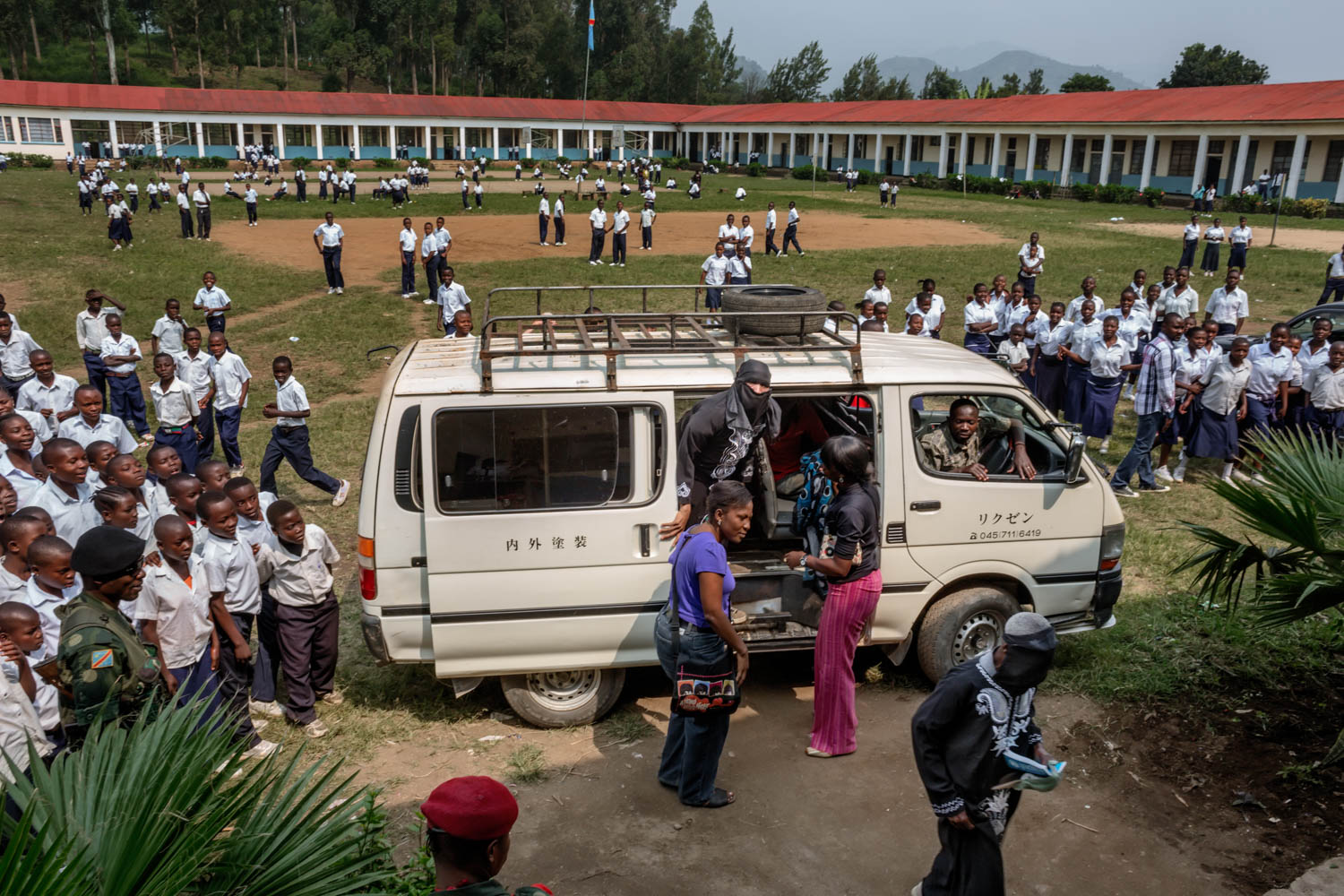
Students flock around a van that is delivering women scheduled to testify. For one week, the trial was held in a makeshift courtroom, set up in the auditorium of a Catholic school in Minova. Since victims could not afford a trip to Goma, more than 30 miles away, the court came to them.
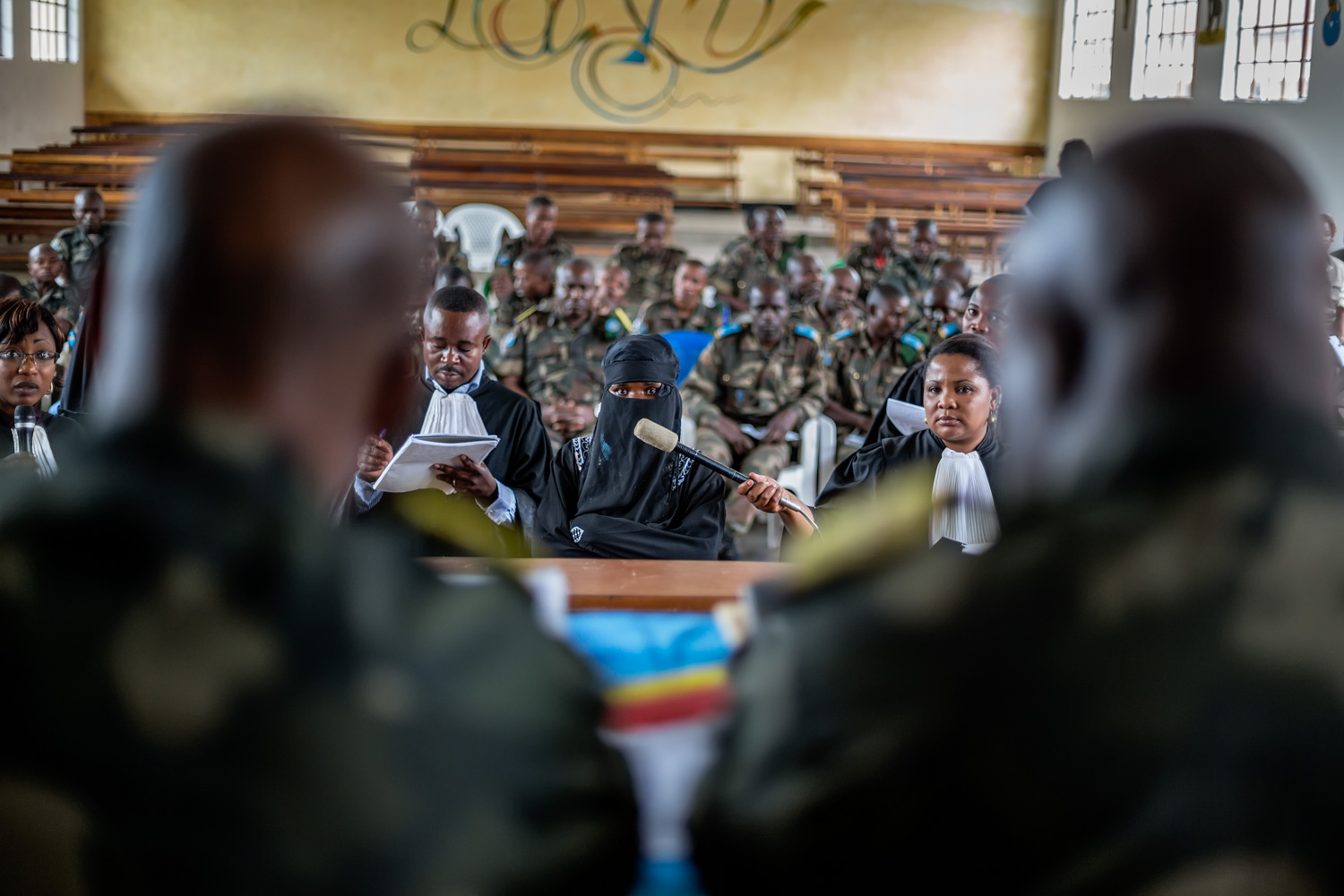
A victim testifies before the closed military tribunal. A member of the prosecution team holds a microphone up for her while a defense lawyer makes notes. The accused soldiers are seated in the rear. Victims are often extremely reluctant to step forward due to the stigma that Congolese society places on victims of rape. In Minova, only 47 victims testified.
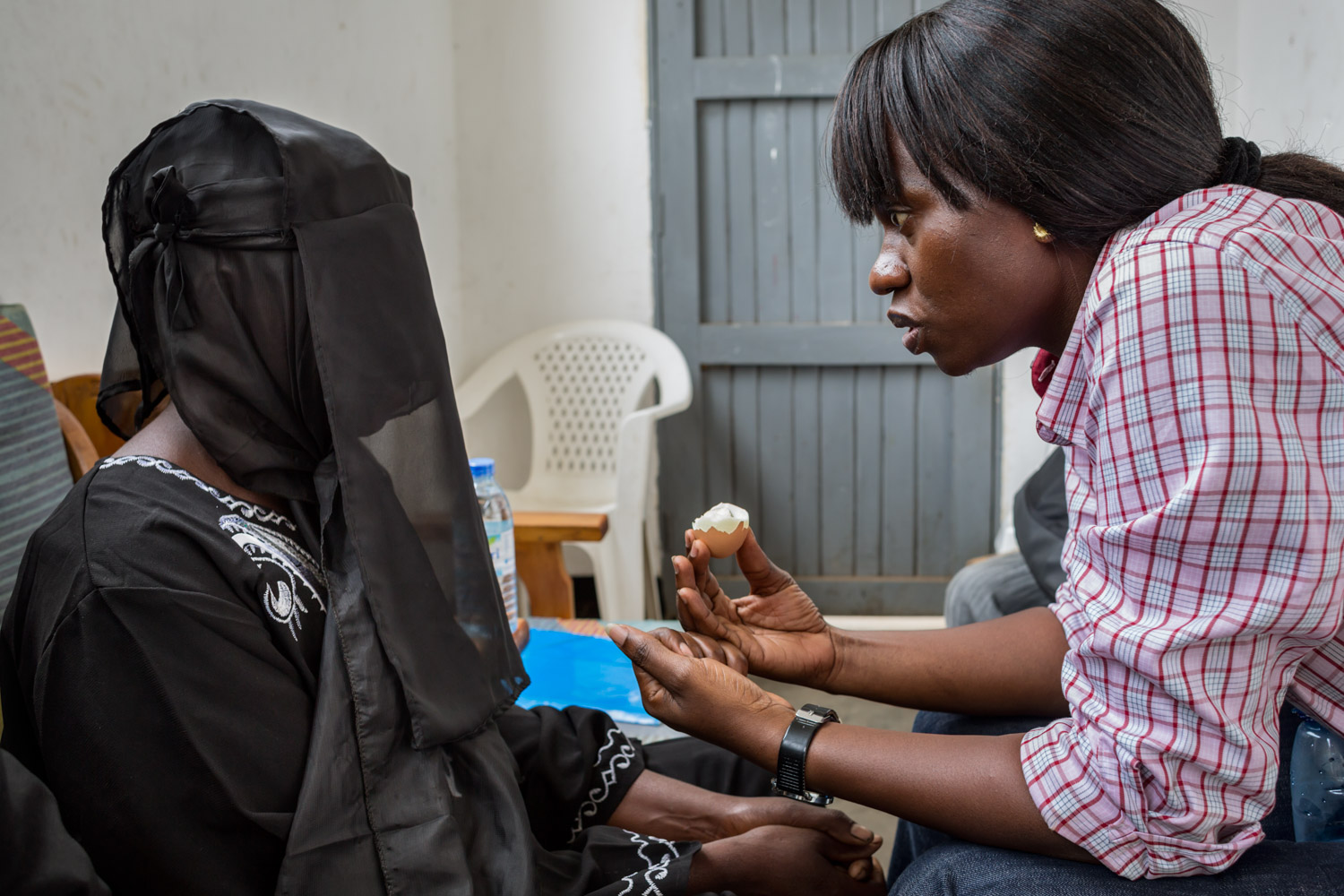
Many victims have post-traumatic stress disorder. Here, a woman about to testify, became deeply afraid. Her mind had fixated on the events of the night she was raped. To calm her, a psychologist told her, “Do you know where you are now? There is nothing to fear here. You are safe. Look at this egg in front of you. Look at the shell that I peeled off. Focus on the present."
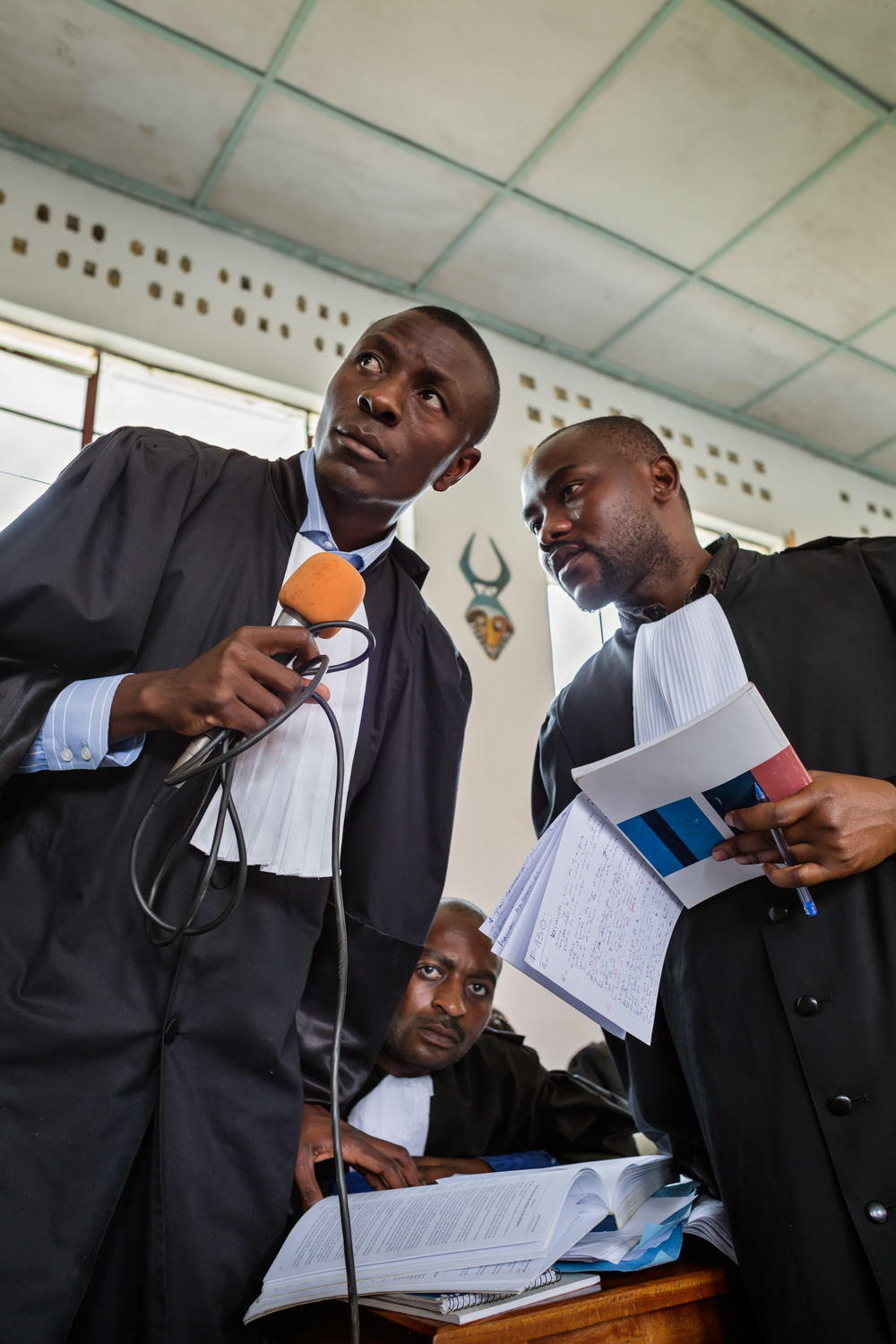
Three defense lawyers listen to a testimony and discuss their next response.
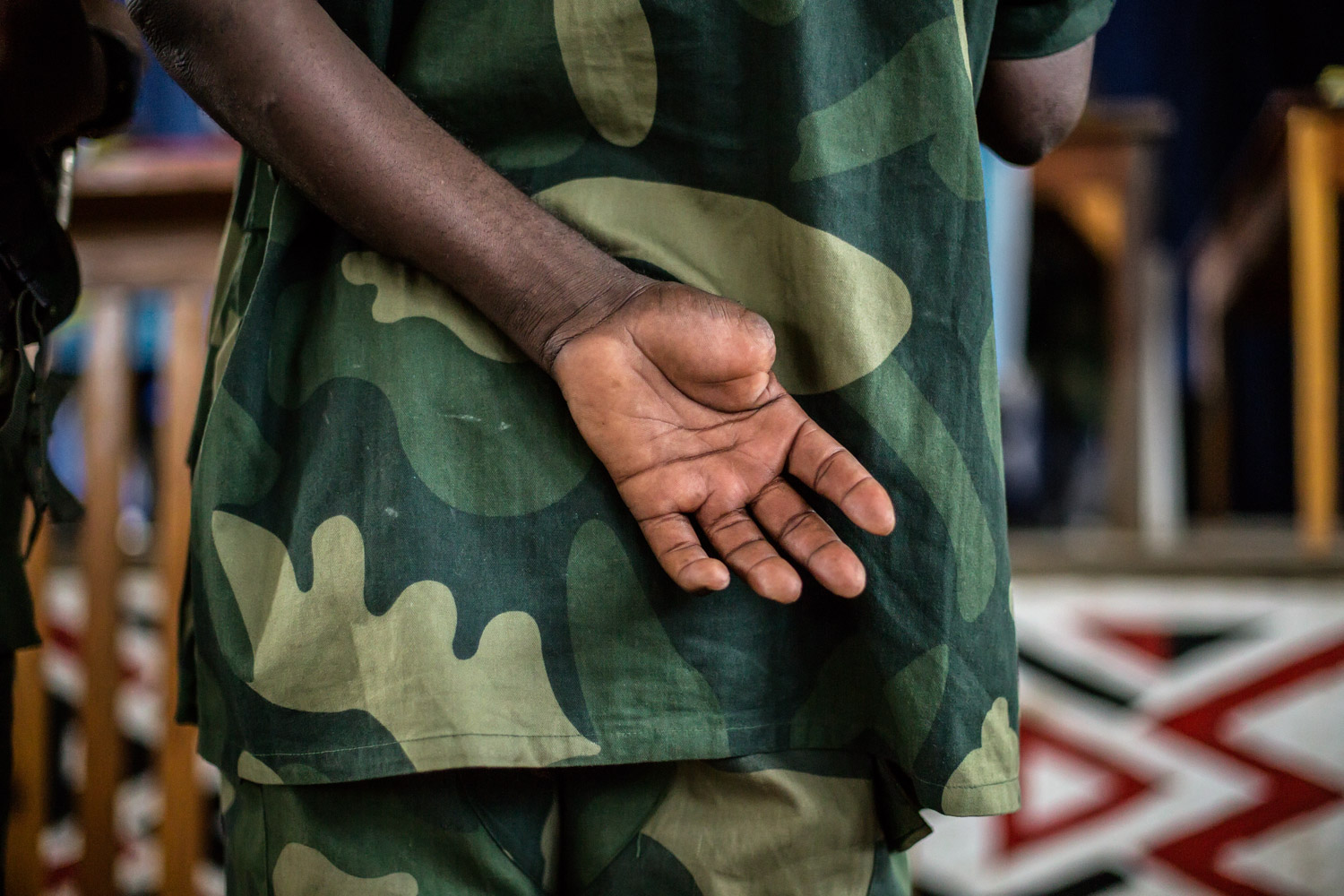
An accused soldier is brought up to the podium for questioning after a victim identified him as the man who raped her. A victim testified that she was raped at night and didn't see her attacker's face but noticed he had a long scar on his forearm and no thumb. The judges asked if he was in the room. She hesitated. After more encouragement, she raised her arm and firmly pointed to her assailant.
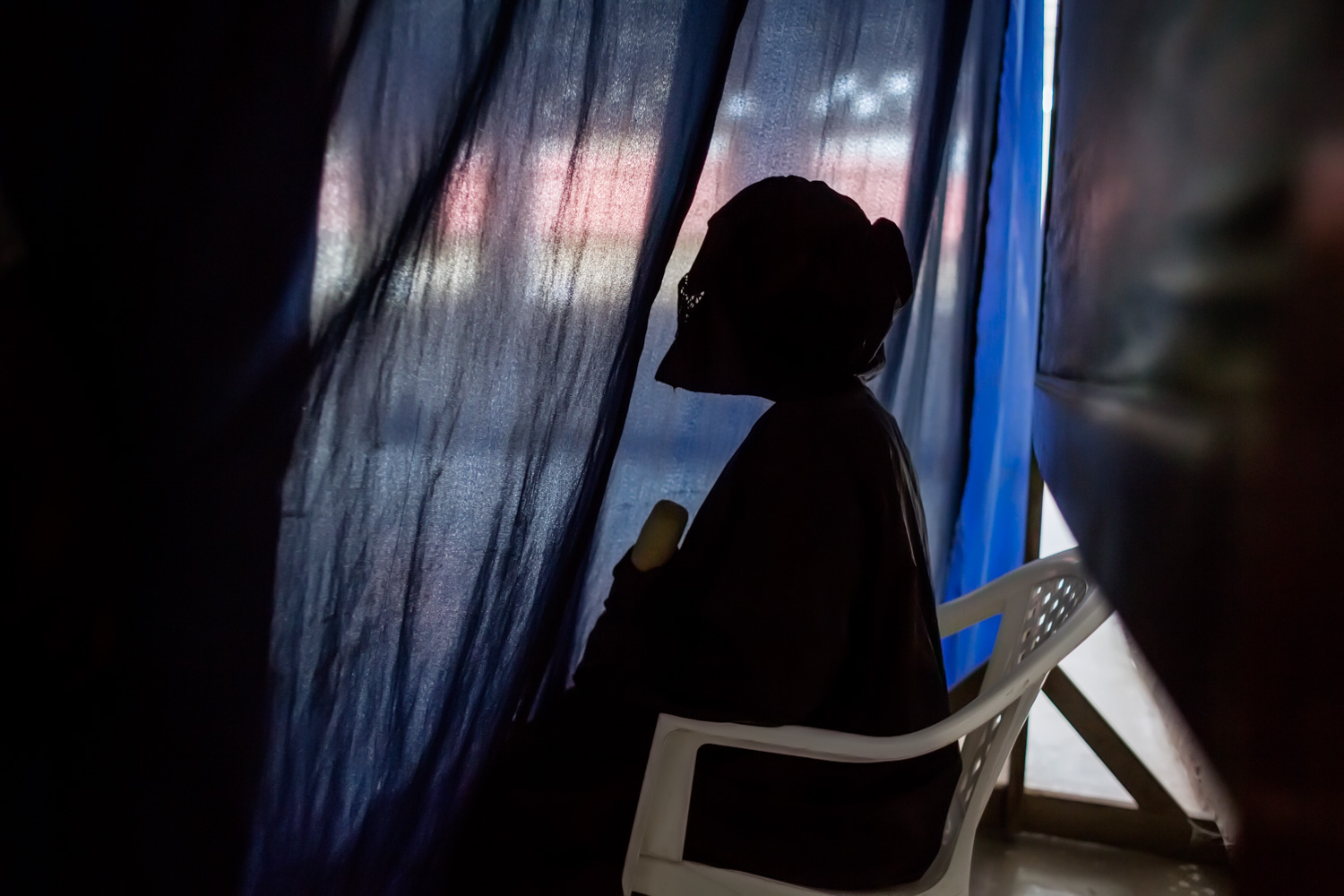
A veiled rape survivor testified in court behind a curtain to further shield her from the eyes of those she accused. Special care is taken to provide rape survivors with disguises, curtains, veils, whatever they may need to feel secure when giving their testimony. The women are referred to by numbers instead of by name to maintain their anonymity.
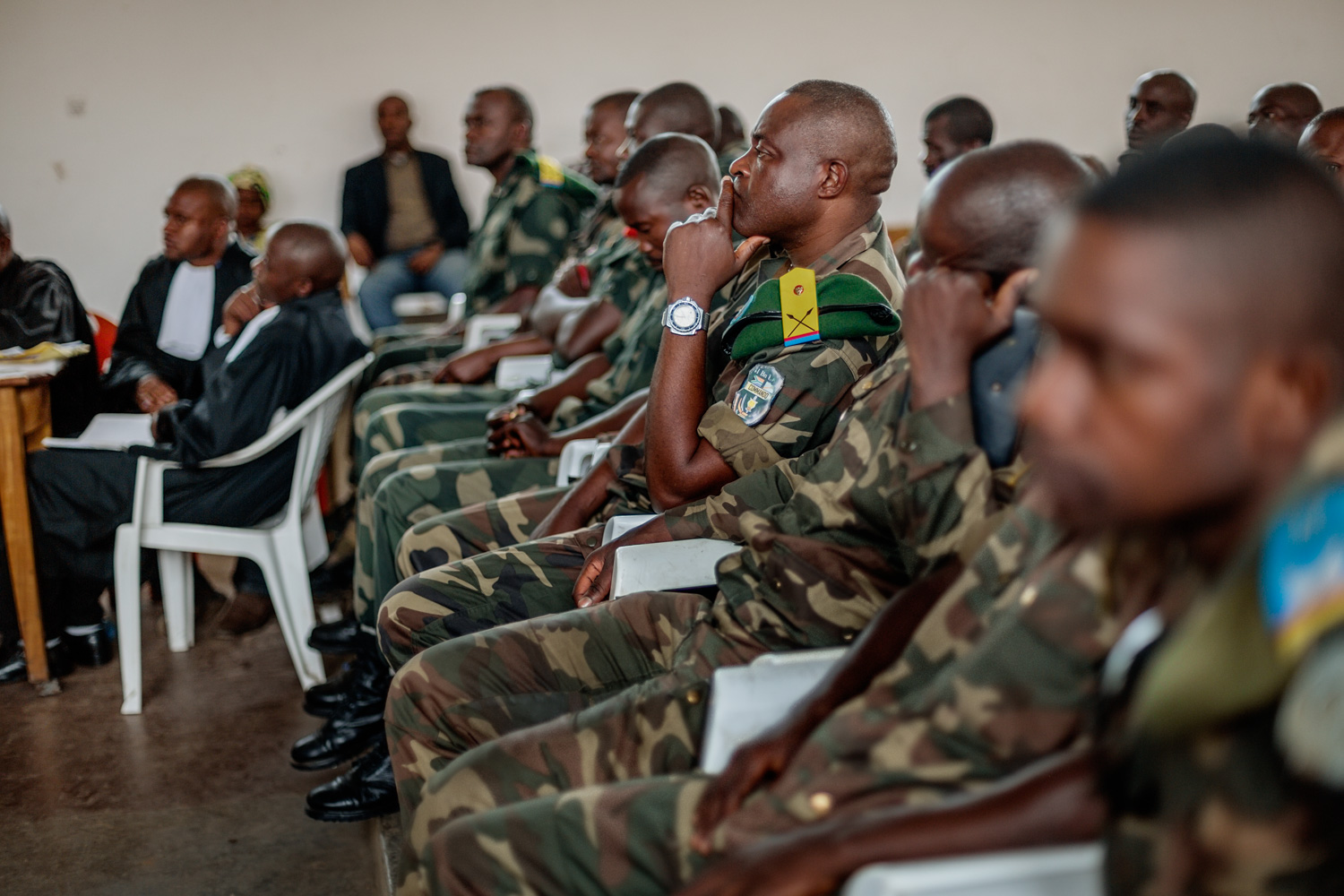
All but four of the 37 soldiers accused of rape sat in the trial room. The missing four were still on active duty in northern DRC. 25 of the accused were lower-ranked soldiers, while twelve were officers in charge of those soldiers’ units. At a trial in nearby Mupoke in 2013, only one soldier stood accused of rape. The others fled before the trial took place.
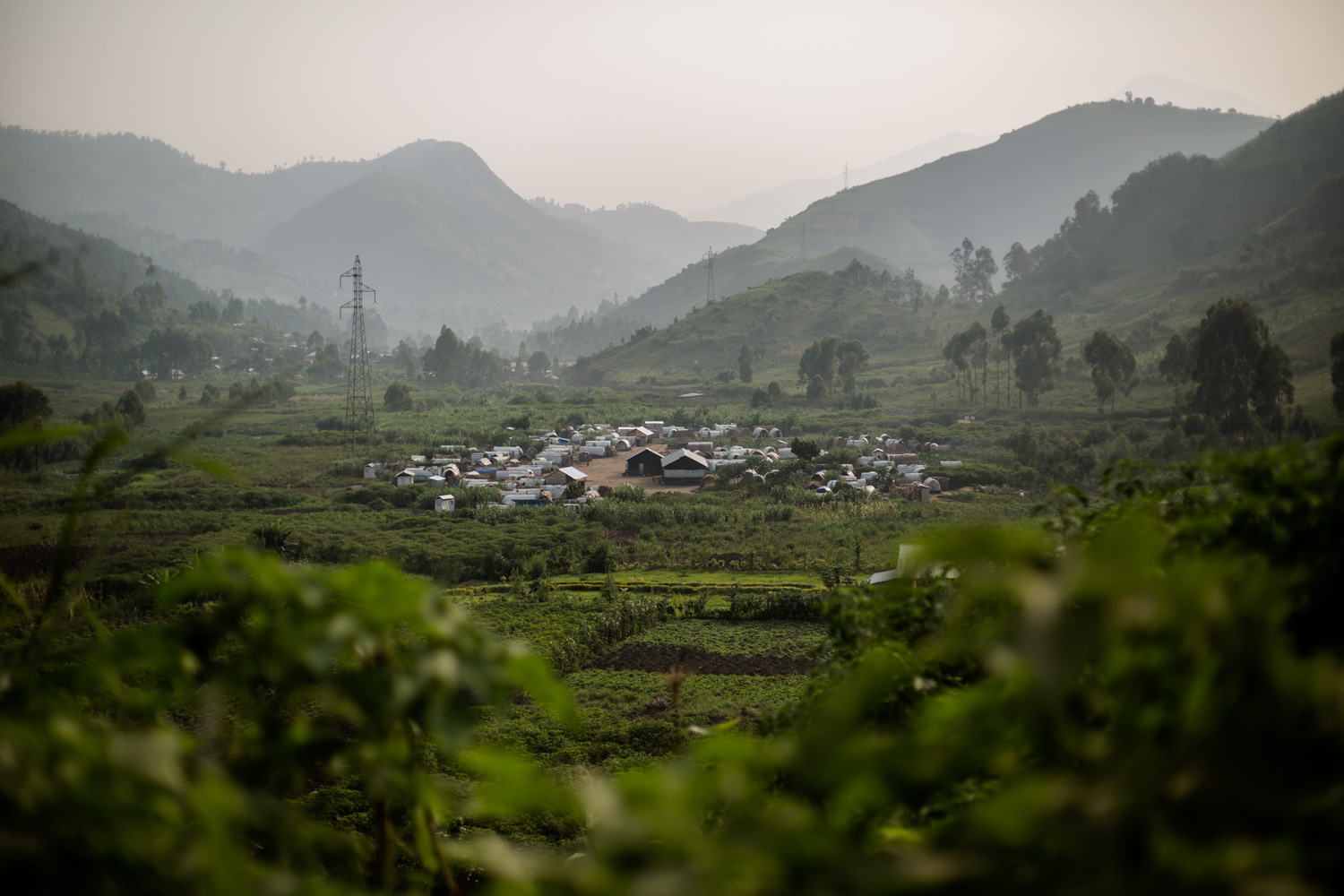
One mile south of Minova is Mubimbi, a small camp for those displaced by the conflict that has plagued Congo for nearly two decades. Eleven of the rape survivors who testified at the rape trial in Minova were living in this camp in November 2012 when they were attacked by FARDC soldiers who were moving from the army's encampment in Minova to another town further south.
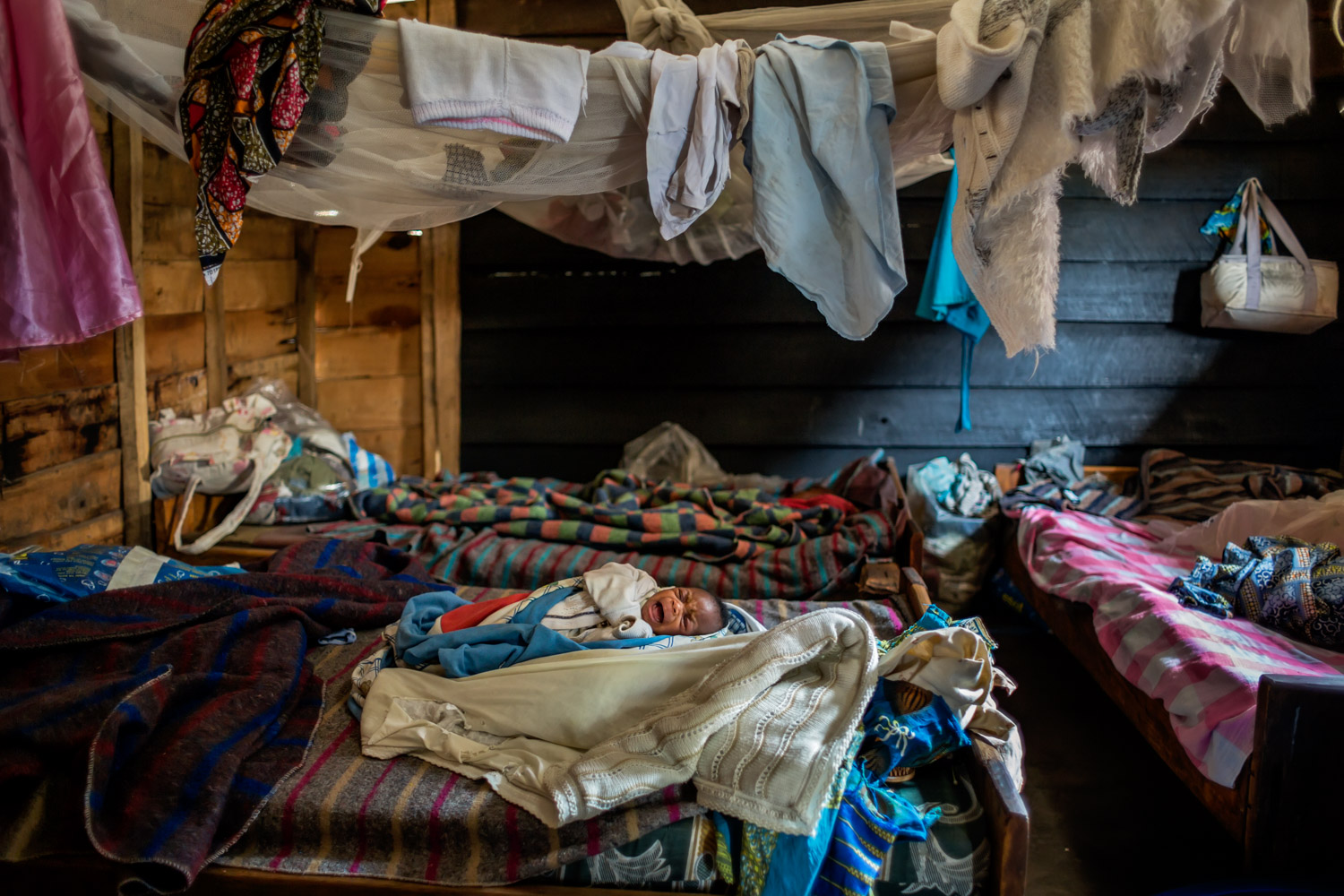
A two-week-old infant cries in a shelter for victims of sexual violence in the village of Buganga, two miles south of Minova. Founded by the activist Rebeca Masika Katsuva, a rape survivor herself, the center was home to more than 30 women and children during the attacks of November 2012.
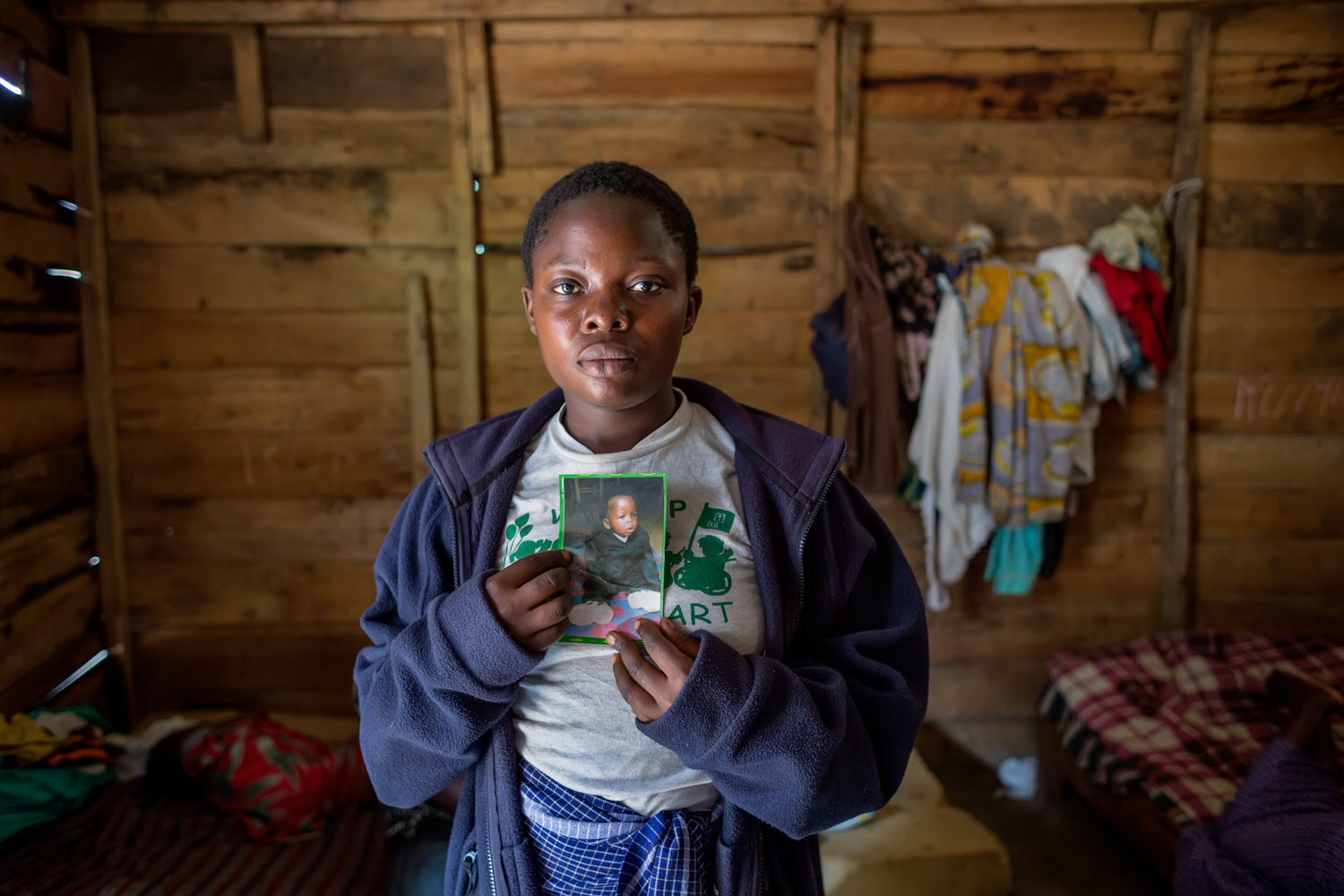
A victim, 18 years old, holds a photo of her son, Arlain, who died as a consequence of the events of November 2012. FARDC attacked houses all over the Minova, including a center for rape survivors, run by human rights activist and rape survivor herself, Rebecca Masika. Many of the women at the center -- already victims of rape -- were raped again by the soldiers. "When they pillaged, they also stole my son. They put him in a suitcase and left. We found him a few days later in the same suitcase, abandoned near our center. He was so ill afterwards. He died a month later.” Arlain was 18 months old.
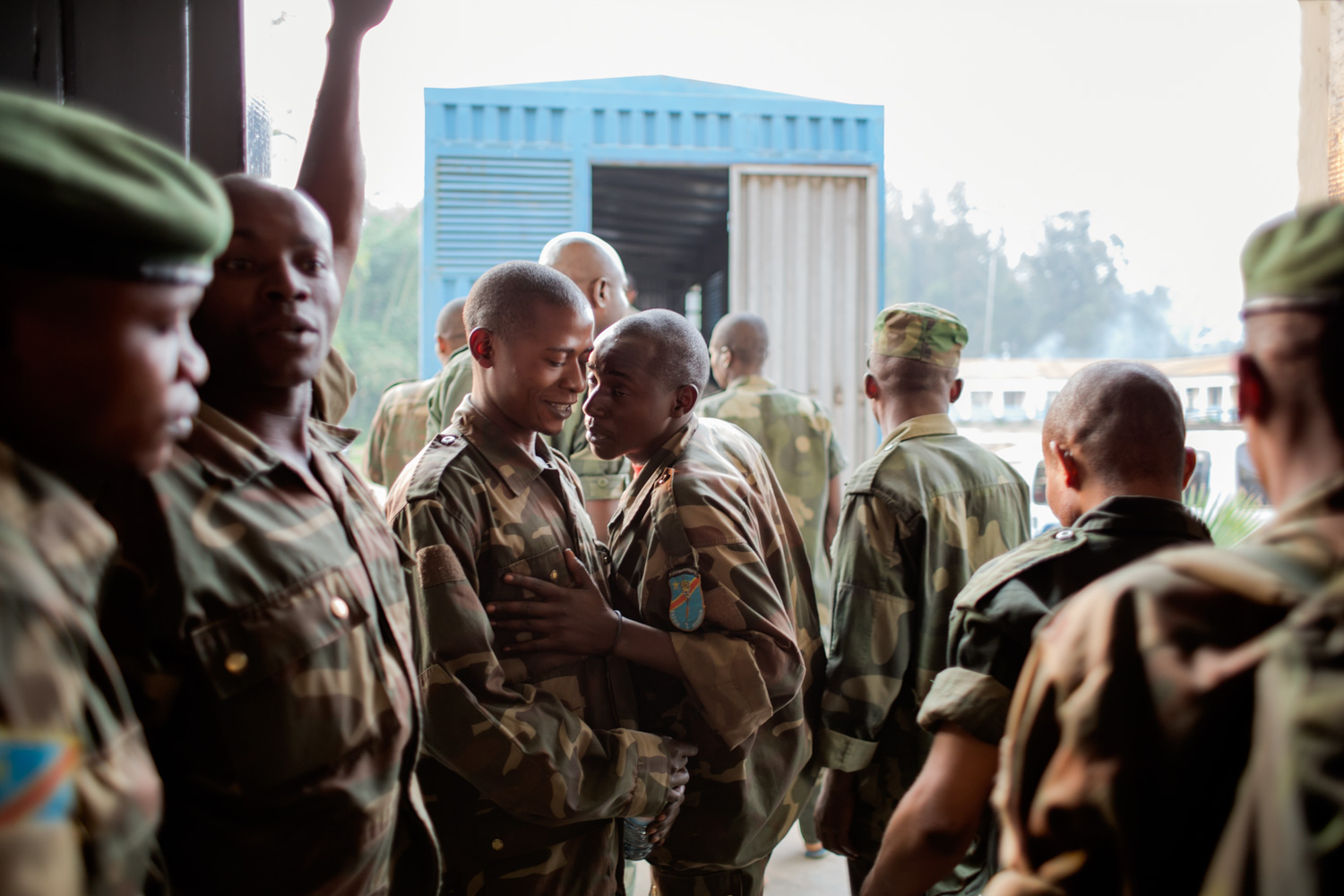
At the end of the trial day, the lower-ranked FARDC soldiers pile into a truck that will transport them back into custody. The twelve higher-ranked officers on trial left on their own accord. They were not in custody and were able to move freely.
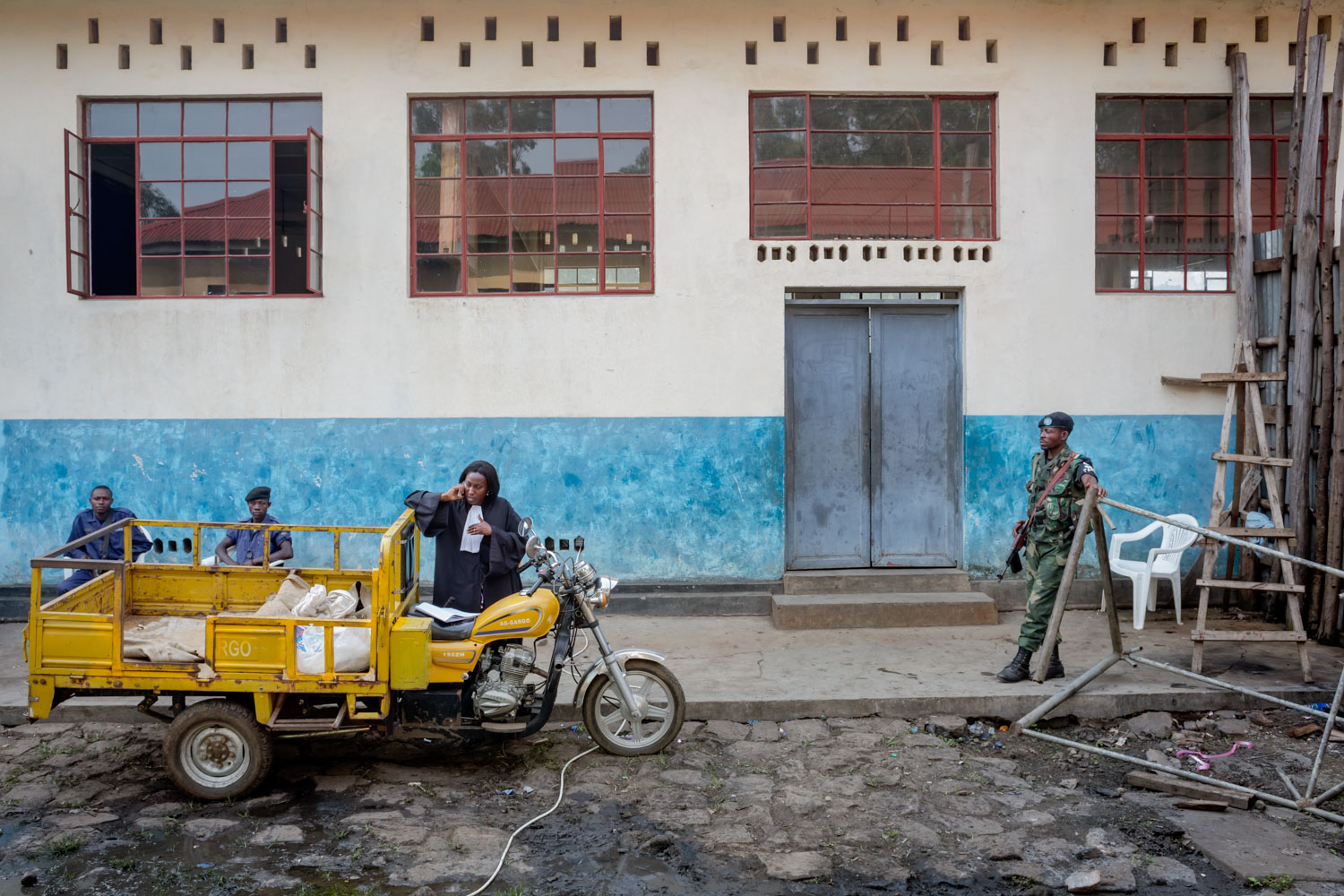
Amani Mireille Kahatwa, a lawyer on the team of prosecutors, steps outside to make a phone call. The prosecution team is supported by the American Bar Association.














A victim testifies. On a November evening in 2012, around 8 p.m., Congolese government soldiers knocked on her door. Her five children scattered and hid in the bedroom. Her husband was already gone. He fled when he heard bullets fired earlier. When the soldiers entered the house, two of them threw her on the ground and began to rape her. The others pillaged her home, carrying off sacks of rice and corn, cans of cooking oil that her family had received from an aid organization. Her husband returned in the morning. When he learned she had been raped, he left and never returned.
Students flock around a van that is delivering women scheduled to testify. For one week, the trial was held in a makeshift courtroom, set up in the auditorium of a Catholic school in Minova. Since victims could not afford a trip to Goma, more than 30 miles away, the court came to them.
A victim testifies before the closed military tribunal. A member of the prosecution team holds a microphone up for her while a defense lawyer makes notes. The accused soldiers are seated in the rear. Victims are often extremely reluctant to step forward due to the stigma that Congolese society places on victims of rape. In Minova, only 47 victims testified.
Many victims have post-traumatic stress disorder. Here, a woman about to testify, became deeply afraid. Her mind had fixated on the events of the night she was raped. To calm her, a psychologist told her, “Do you know where you are now? There is nothing to fear here. You are safe. Look at this egg in front of you. Look at the shell that I peeled off. Focus on the present."
Three defense lawyers listen to a testimony and discuss their next response.
An accused soldier is brought up to the podium for questioning after a victim identified him as the man who raped her. A victim testified that she was raped at night and didn't see her attacker's face but noticed he had a long scar on his forearm and no thumb. The judges asked if he was in the room. She hesitated. After more encouragement, she raised her arm and firmly pointed to her assailant.
A veiled rape survivor testified in court behind a curtain to further shield her from the eyes of those she accused. Special care is taken to provide rape survivors with disguises, curtains, veils, whatever they may need to feel secure when giving their testimony. The women are referred to by numbers instead of by name to maintain their anonymity.
All but four of the 37 soldiers accused of rape sat in the trial room. The missing four were still on active duty in northern DRC. 25 of the accused were lower-ranked soldiers, while twelve were officers in charge of those soldiers’ units. At a trial in nearby Mupoke in 2013, only one soldier stood accused of rape. The others fled before the trial took place.
One mile south of Minova is Mubimbi, a small camp for those displaced by the conflict that has plagued Congo for nearly two decades. Eleven of the rape survivors who testified at the rape trial in Minova were living in this camp in November 2012 when they were attacked by FARDC soldiers who were moving from the army's encampment in Minova to another town further south.
A two-week-old infant cries in a shelter for victims of sexual violence in the village of Buganga, two miles south of Minova. Founded by the activist Rebeca Masika Katsuva, a rape survivor herself, the center was home to more than 30 women and children during the attacks of November 2012.
A victim, 18 years old, holds a photo of her son, Arlain, who died as a consequence of the events of November 2012. FARDC attacked houses all over the Minova, including a center for rape survivors, run by human rights activist and rape survivor herself, Rebecca Masika. Many of the women at the center -- already victims of rape -- were raped again by the soldiers. "When they pillaged, they also stole my son. They put him in a suitcase and left. We found him a few days later in the same suitcase, abandoned near our center. He was so ill afterwards. He died a month later.” Arlain was 18 months old.
At the end of the trial day, the lower-ranked FARDC soldiers pile into a truck that will transport them back into custody. The twelve higher-ranked officers on trial left on their own accord. They were not in custody and were able to move freely.
Amani Mireille Kahatwa, a lawyer on the team of prosecutors, steps outside to make a phone call. The prosecution team is supported by the American Bar Association.